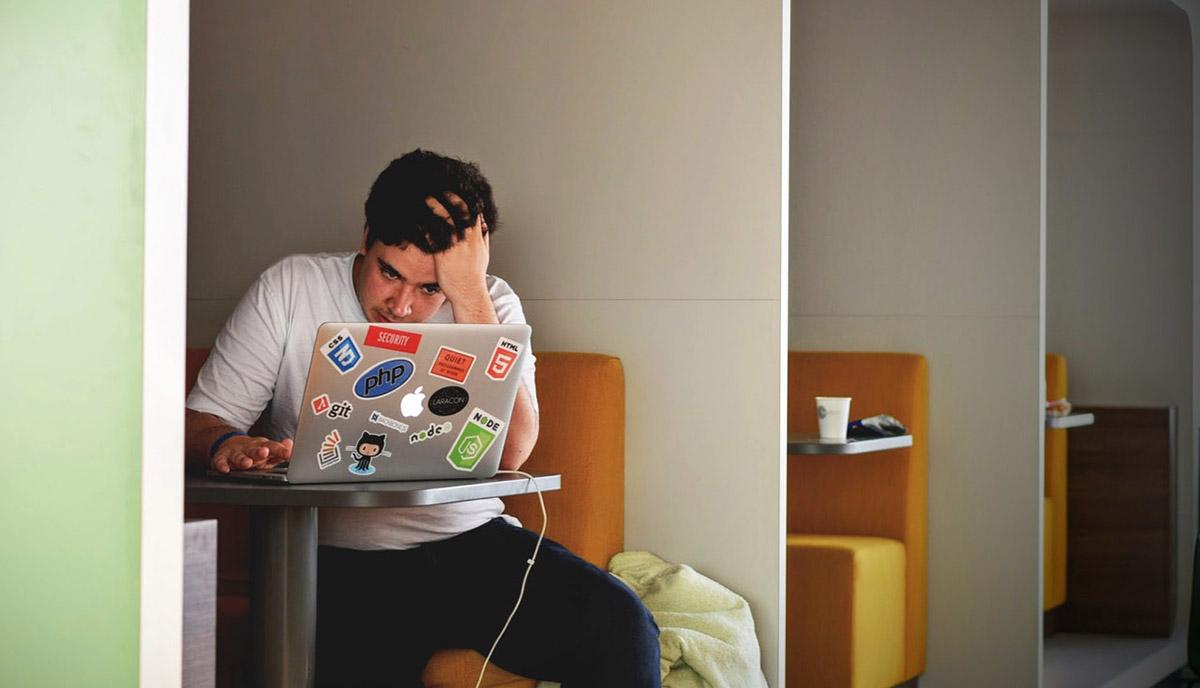10 Signs That Show You May Have Exam Exhaustion
by StudyMalaysia.com on September 30, 2015 | Top Stories

It’s that time of year where students sitting for a big year end exam (like SPM) will be studying, cramming, going for extra tuition class and drinking lots of coffee. With so much to do and everyone around you getting into exam fever mode, it can get a little too much to handle. How are you coping? Do you have everything under control? Here are 10 signs to look out for.
1. You hit the snooze button over and over... and over again
“Just 5 more minutes….” When the alarm rings, you hit snooze and promise yourself that you’ll be up in a few minutes. And then you hit snooze again and again until you don’t even realise what you’re doing. When you finally get up an hour later and realise you’ve overslept, you rush like crazy and with your heart pounding, you head out the door.
What you should do instead: Plan to get at least 8 hours of uninterrupted sleep. If you need to wake up at 6am, make sure you’re in bed by 10pm. Your body (and mind) will thank you.
 2. You fall asleep almost anywhere
2. You fall asleep almost anywhere
You’re so deprived of sleep that you nod off in class, in the library, in the canteen, while studying, on the way to school and back… well, almost anywhere. Lack of sleep and an inconsistent sleep pattern will take its toll on your body. Sleeping at regular hours is best – after all, you’ll be sitting for your exam during the day; you want to train your mind to work best then and not at 3am.
What you should do instead: See #1.
3. You panic each time someone discusses a question you haven’t heard of
It’s a common thing – someone starts discussing a question and suddenly, your heart is beating faster and you break into cold sweat because you don’t know the answer. You shout, “Where did you get this question? How come I didn’t read about this? What’s the answer?”
What you should do instead: It’s OK if you haven’t heard of the topic or question. If you feel as if you’re going to panic, take a deep breath and listen to what the others are saying instead. Make a note of the question or topic and check it out later when you study. You could also ask your teacher for help. Easy peasy!
4. Walking up a flight of stairs seems to take up all your energy
It could be that you’re carrying more books around and that your bag is heavier, but if you find that you’re feeling tired most of the time and walking up the stairs leave you huffing and puffing, you may need to listen to your body and give it a break.
What you should do instead: Besides getting enough sleep, take regular breaks when studying. Get up, stretch, and walk around. Try to schedule some exercise – a walk, a quick football game, or cycle round your neighbourhood. While you may think that rest is what you need most, exercising relieves stress, helps your body to feel fit and your mind to think better.
5. You can’t remember when you had your last meal
If you can’t remember when you last ate, chances are you haven’t been paying attention to your diet or you could be skipping meals and eating only when you feel hungry. Or worse, you could have stopped feeling hungry altogether.
What you should do instead: Take care of your body – plan your meals and aim to have healthy nutritious food in your diet. And drink lots of water too!
6. You’re living on junk food, coffee and energy drinks
It’s all too easy. Rather than get yourself a wholesome meal, you open a packet of chips, snack on junk food and guzzle energy drinks or coffee so that you can continue studying. It may be convenient but it’s definitely not good for you.
What you should do instead: See #5. And go easy on drinks that contain lots of sugar. Tip: If you’re drinking coffee for a pick-me-up, take a 20-30 min nap right after your coffee and you’ll wake up more refreshed. Read the science behind it here.
 7. You’re more forgetful than usual
7. You’re more forgetful than usual
“Hey, where did I put my pen? My book was here – where is it now? Has anyone seen my phone? Arghh… I forgot I have tuition tonight.”
If you seem more forgetful than usual, it could mean that you have too many things on your mind.
What you should do instead: Try to start each day by listing down what you want to achieve and be realistic about it (read: studying 10 chapters of history in two hours is NOT realistic). It will be less stressful once you’ve got it all planned out. In fact, things will seem simpler and less scary once you’ve written them down. Tick each item once you’ve completed it. Bring forward whatever you haven’t finished to the next day.
8. You study for two hours only to realise you can’t remember a thing
It’s happened to the best of us. We study in earnest for a few hours but the moment we leave our desk, it’s as if all the information you’ve been reading left you as well.
What you should do instead: Perhaps you have too many things on your mind and have trouble staying focused. See #7. In addition, try to use a study guide when you’re revising. List the things you want to achieve for a particular chapter, e.g. list the sources of pollution and suggest ways to control them.
9. You’re procrastinating more than usual
You know you need to revise for your trials but you decide to watch a movie in the afternoon and get to studying at night. At night, you’re so tired you laze on your bed and play games on your laptop for two hours and spend another hour on Facebook. The next day, you panic a little, study one chapter and end up taking a nap.
What you should do instead: See #7. We often procrastinate when we feel overwhelmed by too many things to do. If you break them down to smaller tasks, it will seem less daunting and you’ll be more likely to start and complete them. However, if your problem is too many distractions, then you need to power up your self-discipline. Start by putting your phone in a different room when you study. Limit yourself to only two hours of R&R time a day for social media and hanging out with friends. On your laptop, close all windows that give out alerts and disable all chats.
10. You start to avoid friends and family
When we are stressed, some of us prefer to be alone. While shutting yourself out could be good in terms of minimising distractions, it may not benefit you to go solo when stressing out.
What you should do instead: The stress of exams can be rough – the good news is that you don’t have to go through it alone. Confide in someone you trust – a parent, a sibling, a friend, or even a teacher. Often, talking about our fears and what’s causing our stress will make us feel better. Study with a buddy or get together with some friends to give yourself a break. A study on 100 kids aged 10-12 years showed that being around a best friend can help reduce the stress hormone, cortisol.
If you’re showing all (or most of) these signs, it could mean that you’re a little too stressed. Talk to someone you trust and don’t be afraid to ask for help. Remember, you don’t have to go through this alone!
Related article: Beat exam anxiety and do better in your SPM exam
You May Also Be Interested In...
Malaysia’s future lies in digitalising its education sector
![Malaysia’s future lies in digitalising its education sector - StudyMalaysia.com]() As the World Bank emphasised in a report last year, the digital econom...
As the World Bank emphasised in a report last year, the digital econom...What is plagiarism and what you need to know
![What is plagiarism and what you need to know - StudyMalaysia.com]() Are you working on your term assignment? Or writing an essay? Or perha...
Are you working on your term assignment? Or writing an essay? Or perha...�Application for Admission into The National University of Singapore 2016/2017 is Open
![�Application for Admission into The National University of Singapore 2016/2017 is Open - StudyMalaysia.com]() If you're looking for higher education options, add NUS to your l...
If you're looking for higher education options, add NUS to your l...Top Financial Technology (FinTech) Courses in Malaysia and Related Career Opportunities
![Top Financial Technology (FinTech) Courses in Malaysia and Related Career Opportunities - StudyMalaysia.com]() Financial technology (FinTech) is an innovation that is set to complem...
Financial technology (FinTech) is an innovation that is set to complem...Becoming An International Student In Malaysia And Immigration Procedures
![Becoming An International Student In Malaysia And Immigration Procedures - StudyMalaysia.com]() So are you ready to become an international student in Malaysia? Th...
So are you ready to become an international student in Malaysia? Th...Malaysia Top 10 Outstanding Artists Awards 2023 Crowns Its Winners!
![Malaysia Top 10 Outstanding Artists Awards 2023 Crowns Its Winners! - StudyMalaysia.com]() The country’s largest secondary school art competition – the Malay...
The country’s largest secondary school art competition – the Malay...





























